Why is My Puppy Always Hungry? [What to DO?]
Puppies are little gobbling machines. It seems that they are hungry all the time, even just minutes after finishing their last meal! Making sure your fur baby is fed properly, both in terms of quantity and frequency, is a crucial aspect of puppy ownership.
Your puppy’s health may suffer from overfeeding just as much as underfeeding. Inadequate feeding of them can have a direct impact on their behavior and health while overfeeding leads to obesity, which is a definite no-no for young, growing puppies.
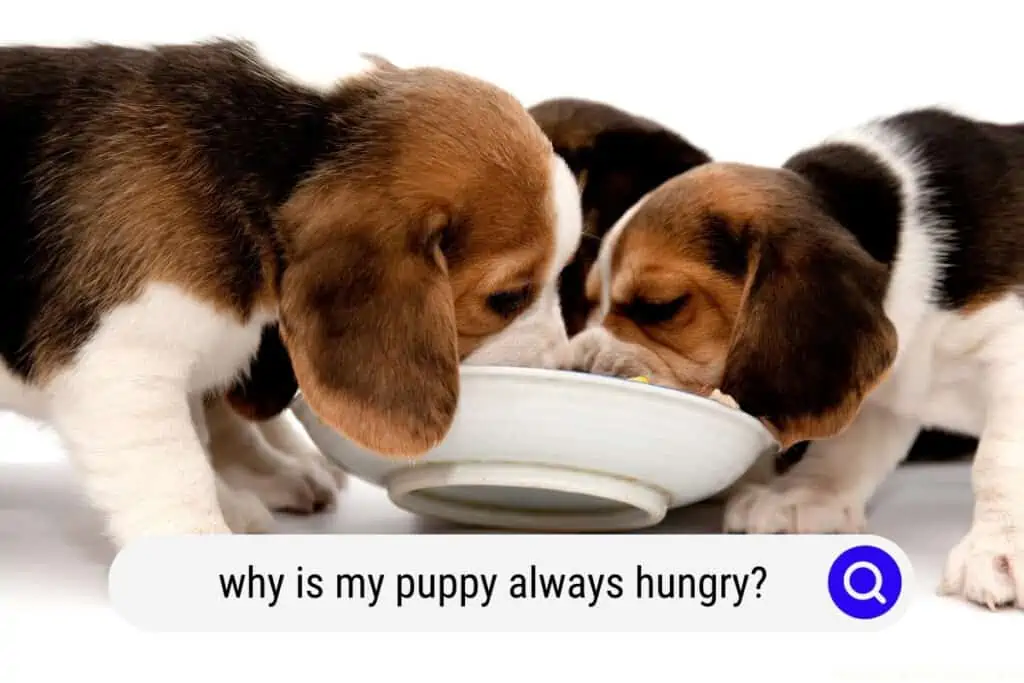
In this blog post, we’ll look at why puppies seem to always be hungry, and proper feeding schedules for young pups.
Why Does My Puppy Always Want to Eat?
Puppies burn an incredible amount of calories a day. After all, growing is hard work! Puppy food has way more calories than adult dog food, and a puppy will eat more calories than an adult dog of a similar size.
Because they require more daily calories, your puppy may always be ravenous. Then there are the pups that will grow up to be gluttons and always food obsessed.
Because of their pleading tiny faces and winning expressions, it is very easy to overfeed your puppy at this stage. However, DON’T!
An obese puppy is unhealthy for several reasons. First, carrying excess weight puts strain on the puppy’s joints and muscles, which can lead to pain and injuries. Second, obesity can cause respiratory problems, as the extra tissue in the chest cavity makes it difficult for the lungs to expand fully.
Third, obesity increases the likelihood of developing diabetes, as fatty tissue interferes with the body’s ability to process insulin.
Finally, being overweight puts the puppy at risk for many other health problems, including heart disease, high blood pressure, and kidney disease. In short, there are many good reasons to keep your puppy at a healthy weight.
The amount of food you should give your dog is not always obvious. Their age, health, weight, and amount of energy they expend all play a part in this, and if you are in doubt, you can check with your veterinarian when you bring your pup in for jabs.
In addition, if your puppy is a rescue or previously neglected, it might have a more ingrained survival system and be a voracious eater, just because it doesn’t know when the next meal is going to be. Be wary of the gobblers, they won’t know when to quit eating and are prone to overeating.
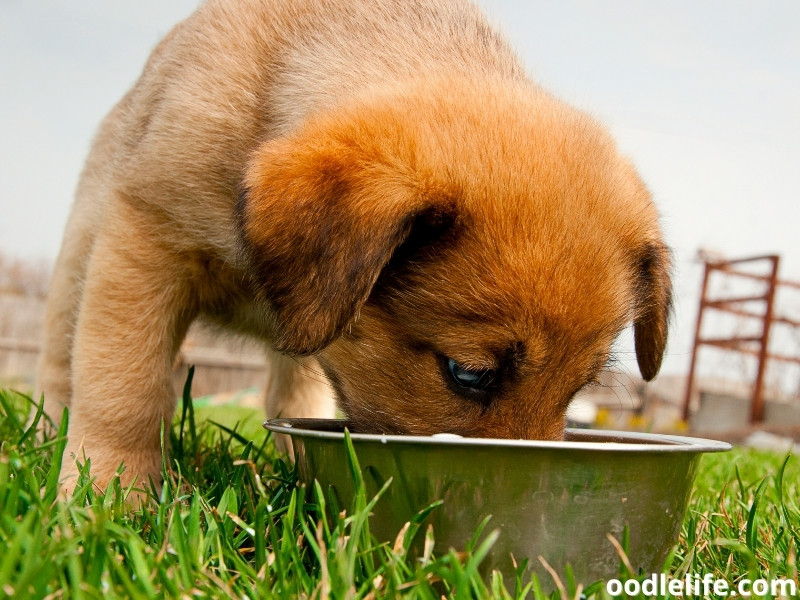
How Often Should You Feed Your Puppy
Young puppies should be fed frequently, while older puppies above six months can be fed two to three times a day.
Puppies digest food more easily and have more stable energy levels when fed smaller meals more often. The suggested feeding frequencies are as follows:
9+ months – 2x each day
6-9 months – 2x-3x each day
3-5 months – 3x-4x each day
8-12 weeks – 4x-6x each day
Just be sure that the total quantity of food given each day is the recommended amount given by the food manufacturer or your veterinarian.
For example, if your puppy is supposed to eat two cups a day, it can be broken up into half a cup four times a day.

What To Feed My Puppy?
Feed only top-quality puppy food that is recommended for your puppy’s size and breed. For example, if you have a Chihuahua pup, feed a pup food meant for small breeds, and the same goes for large breeds.
When you’re looking for the best puppy food, it’s important to consider your pup’s individual needs. For example, small breeds tend to need a higher calorie diet than large breeds. You’ll also want to take into account your pup’s activity level, as more active dogs will need more calories than less active dogs.
Another factor to consider is your puppy’s coat type. Dogs with dense coats may do better on a diet that is rich in omega-3 fatty acids, while dogs with dry or sensitive skin may benefit from a food that is high in protein and low in grain.
Every puppy or dog requires a range of high-quality nutrients for development, energy, and wellness. Synthetic substances are more difficult to digest than naturally occurring ones, and the high heat employed in highly processed foods can destroy nutrients, so whenever possible, try to look for organic, natural food without cheap fillers or synthetic ingredients.
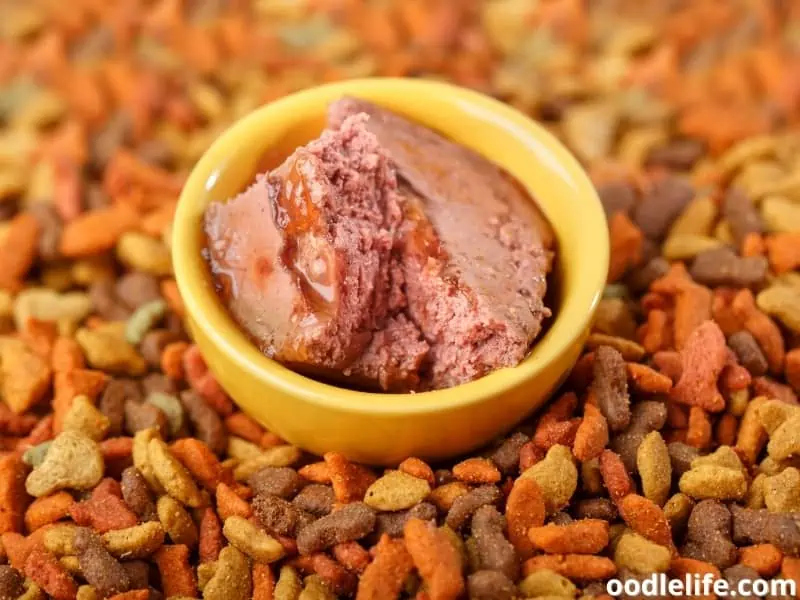
Underlying Health Conditions
Of course, no one wants their pup to be sick, but it happens.
Food Allergies
When feeding your puppy food for the first time, buy a small bag of kibble first to make sure your puppy isn’t allergic to any ingredients. Food allergies are common in dogs, and the common culprits are wheat, soy, and proteins from beef and chicken.
Just like humans, dogs can develop allergies to certain foods. The most common symptom of a food allergy in dogs is itchy skin. This can manifest as excessive scratching, chewing, or licking, often around the paws or hindquarters.
Other symptoms include digestive problems like vomiting, diarrhea, and respiratory difficulties such as wheezing or coughing. If your dog is displaying any of these symptoms, it’s important to see a veterinarian as soon as possible to rule out other potential causes and get your dog on the road to recovery.
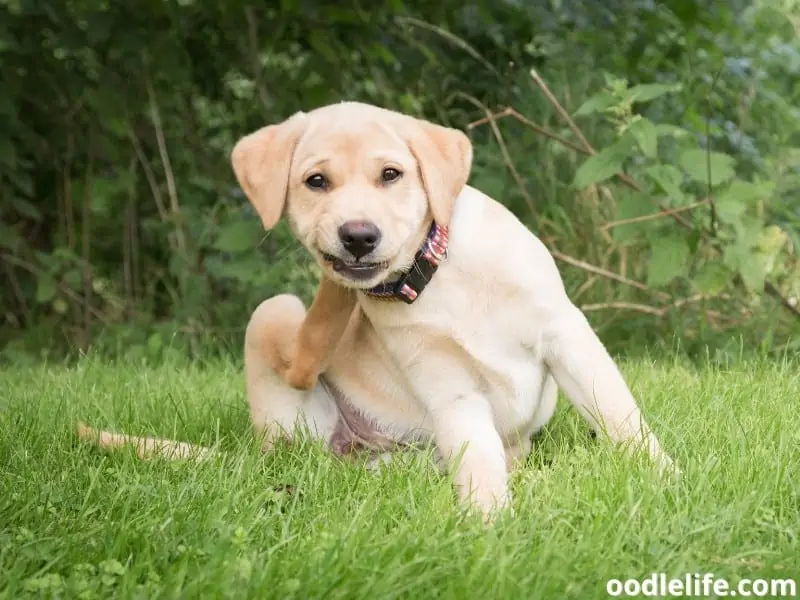
Worms
In addition, worms are a common problem in puppies and can cause serious health problems if left untreated. Several types of worms can infect puppies, including roundworms, tapeworms, and hookworms.
Worms are typically transmitted through contaminated food or water, or by contact with infected feces. Symptoms of worm infestation include weight loss, diarrhea, vomiting, and weakness. If left untreated, worms can lead to anemia, malnutrition, and even death.
Fortunately, there are several effective treatment options available for puppies with worms, and prevention is better than cure, to keep your pup up-to-date on their worming medications.

Medical Conditions
There are a few medical conditions that can cause your puppy to have an increased appetite.
Cushing’s Disease
Cushing’s disease is a condition that can affect puppies and dogs of all ages, though it is more common in older animals. The disease is caused by an overproduction of the hormone cortisol, which can have a variety of harmful effects on the body.
Symptoms of Cushing’s disease include weight gain, increased thirst and urination, hair loss, and lethargy. If left untreated, Cushing’s disease can lead to serious health problems including diabetes, high blood pressure, and kidney failure.

Diabetes
Puppies are particularly susceptible to diabetes because their bodies are still growing and developing. This means that their pancreases are not yet fully functional, and they may have trouble producing enough insulin to regulate their blood sugar levels properly. If left untreated, diabetes can cause serious health problems, including organ damage, blindness, and even death.
Fortunately, there are steps that you can take to protect your puppy from this disease. For example, feeding them a nutritious diet and making sure they get plenty of exercise can help to keep their blood sugar levels under control.

Reduce the Treats
It might be tempting to constantly spoil your new puppy with delicious treats, but you might want to limit the treating to the recommended 10% of all daily calories.
Cutting back on goodies while your puppy is hungry may seem paradoxical, but if your pup has been accustomed to receiving treats frequently, he has to unlearn that behavior. If you reward your puppy with treats, try substituting playtime, cuddles, or other affectionate gestures as you reduce the number of treats you give.
Even if you decide to continue serving goodies, ensure they are produced with fresh, whole foods and have very low fat and calorie content.
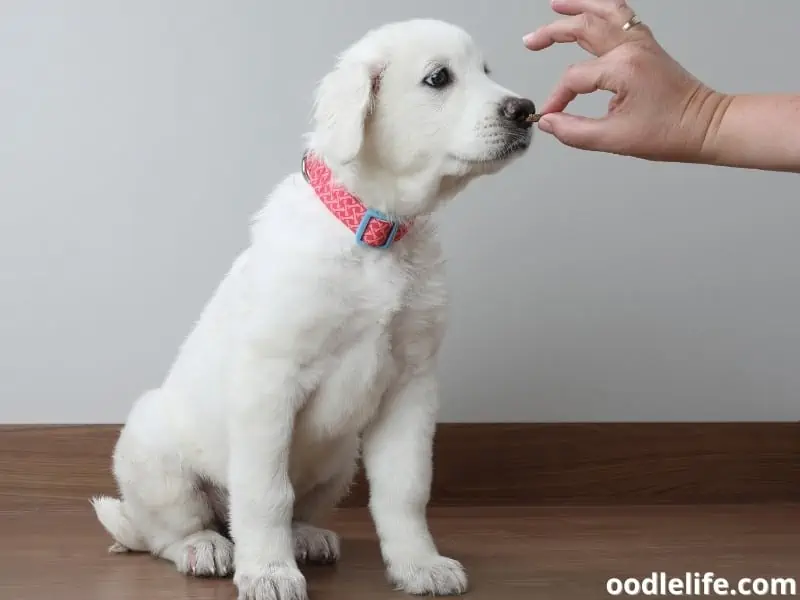
How Do I Tell If I Am Overfeeding My Puppy?
It’s crucial to understand that a puppy might consume too much food. Overeating can lead to bloating, nausea, and other health problems in addition to tipping the scales. Food-obsessed dogs typically have larger eyes than their stomachs.
Your puppy is probably consuming too many calories during the day if his weight is higher than average compared to breed norms. Don’t forget to factor the calories from treats in!
If a pup’s bowel movements are regular in the morning but soft at night, it is quite likely that he has been overfed. While some canine breeds seem to be more prone to experiencing gas than others, persistent gas that smells unusually foul usually indicates a health issue.
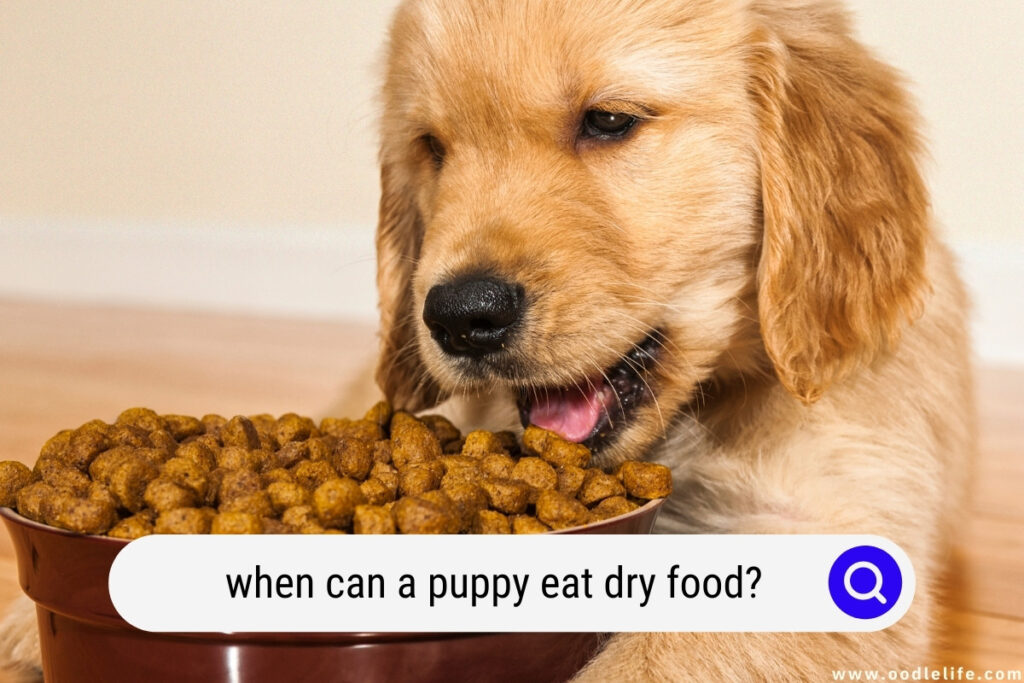
Final Thoughts
Puppyhood comes with plenty of joys, hilarious moments, and also a lot of frustration. The best thing you can do for your pup to help them through this trying time is to give them top-notch nutrition and set them up for success in the future the best you can.
If you think your pup is too small or too big, always check with your veterinarian on a feeding schedule and quantity. A puppy’s future can be significantly impacted by proper nutrition. If you do your homework and keep track of your puppy’s weight gain, you shouldn’t have any trouble providing them with the nutrition they need to live a happy, healthy life.